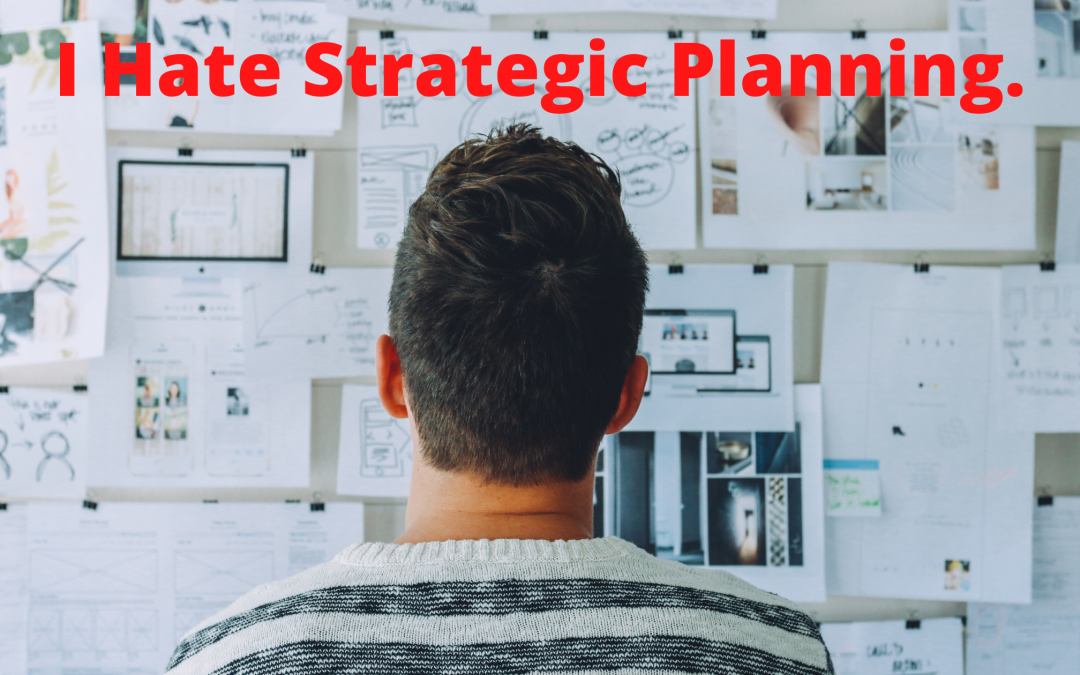(Check out the free Strategic Readiness Inventory© and TPQ© tools at the bottom of this blog)
The title seems strange coming from someone who does this for a living and hypocritical from someone who has also run businesses that required strategic planning. Don’t get me wrong, it’s not that I don’t see it as worthwhile or important. It’s just that over the years I have been worn down for a bunch of different reasons. Maybe you can relate to some of them:
It’s outdated before the ink is dry: I have worked on those plans, pages of analysis, great strategies, clear business cases and then as soon as they are done, they are outdated like the phone book.
My addiction to adrenaline: I admit it is much more satisfying and addictive to fight fires than it is to do forestry planning. So, given a choice, I grab my fire hose and run.
It never makes it past the production floor: It’s like a company that manufactures a beautiful product but never ships it. Sure, the plan may be beautiful, but it never gets taken off the shelf.
Not enough fingerprints on the plan: I will confess I have worked on and created the plan, but never really involved others enough or communicated it effectively to really engage others.
It’s exhausting: It might not seem to be draining, but sitting around a table, talking and, more importantly, thinking deeply consumes more energy that you might think.
I could go on and I am sure you can add to the list. My list gives me great excuses that keep me from making a strategic dive.
So what am I saying? “Don’t do it?” Of course not, but maybe we can think about it differently. Let’s start with what strategic planning is and what it is not. First, it is not an event, it is not a document, it is not reserved for special times or places, and it is not reserved for the board room. My definition of strategic planning: “An ongoing, regular, robust conversation about who we are, where we are going, why we are going there and how we are going to get there.”
What I see too often is that we use forms, processes, and systems to supplant what we really need and that is CONVERSATIONS. A great catalyst to a great conversation is a great question. So, instead of thinking of strategic work as drudgery and a waste of time, think of it as a way to engage in deep conversation.
Questions have this ability to focus the mind and stimulate thinking. I use the analogy of a bell; that when you ring it, it continues to reverberate. So, does a question reverberate long after it has been asked? I believe the foundation of strategic planning is deep and challenging questions to get us to think, to inspect our assumptions, to get out of the box, and get out of our own way.
So here are a few strategic planning TPQ’s© to help along the way:
What strategic question(s) which, if we focus and really work on, can create a powerful impact on our team, our function, our business?
Too many times we avoid the tough questions, like “What’s going to happen when our market gets commoditized?” or “How are we going to use technology to make our operation twice as efficient?”
What are we not talking about? What are we afraid of? What are we avoiding?
The things we avoid may point us to necessities. I don’t know about you, but I avoid the question about what I am avoiding.
How can we embed strategic conversations into all levels of our business?
We tend to think that strategy is reserved for the board room. The reality is that effective strategies are embedded all the way into the organization so that everyone is seeing opportunities, challenging assumptions and, most importantly, thinking differently.
What question do we want to make central to our business?
Bill Hewlett famously asked “what are you working on that is new?” which drove a culture of innovation. I worked with a service company and they chose “what are we doing today to create an exceptional customer experience?” Someone recently asked me “what do you do that is better than your best competitor?” That question has been spinning in my head for days.

